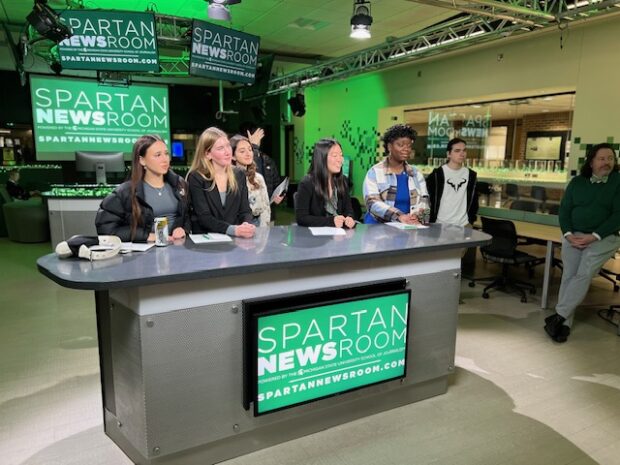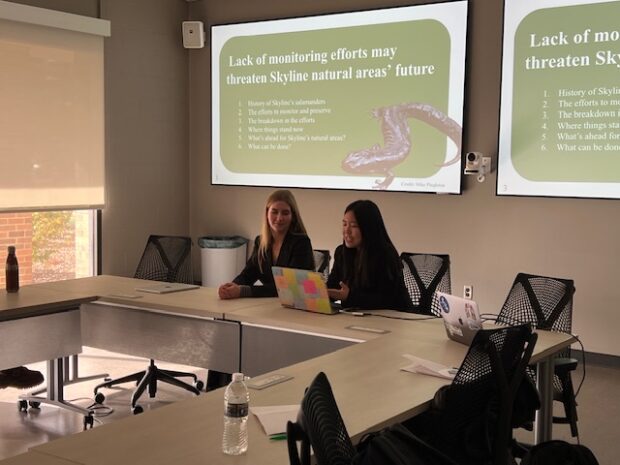
By Clara Lincolnhol
Skyline High School journalism students shared their reporting work and listened to Great Lakes Echo’s senior editor speak recently at the Knight Center of Environmental Journalism.
Skyline’s journalism teacher, Annie Blais, says the Ann Arbor school’s journalism class enables students to improve their writing, become better consumers of news and find topics they’re passionate about.
“They get really into it,” Blais said. “They realize they can do almost anything with it and discover a passion for it which is fun.”
Student journalists Ashley Han and Olivia Watters, who write for the Skyline Post, presented their work, reporting on how Skyline’s natural areas are managed and the mystery of the female-only salamanders found on the school’s property.

Their presentation covered the history of the high school, the current lack of monitoring efforts on the land and how that affects native flora and fauna. The unisexual blue-spotted salamander, a rare type of salamander, is found on the property, raising questions about proper land management and conservation efforts.
The Skyline Post’s work was funded through a grant from the Knight Center to further environmental reporting in the Great Lakes region. Competitive grants go to high schools for media projects in which journalism and environmental science classes collaborate.
“That really helped us fund and launch our program,” Blais said. “MSU’s been instrumental to our success.”
Following Han and Watter’s presentation, Andy McGlashen, the Great Lakes Echo editor and a senior editor at Audubon magazine, spoke about the interconnectedness of the environmental beat.
Skyline Post writers can pitch stories with ease, said student Ian Saucer-Zeoli.
A wide variety of topics are covered, ranging from student affairs to community news. Once exclusively online, the Skyline Post now has occasional print editions, he said.
“About a month ago was our one-year anniversary of our first print edition,” Saucer-Zeoli said.
